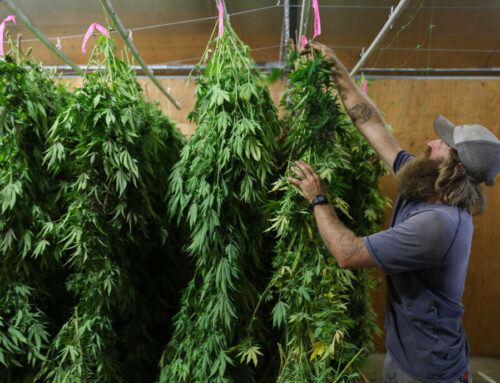Missouri’s Cannabis Microbusiness License Program Under Scrutiny Amid Ineligibility and Exploitation Concerns
NEW YORK– Missouri’s well-intentioned microbusiness license program, designed to foster diversity and inclusion in the burgeoning cannabis industry, is now facing significant scrutiny. Recent findings have revealed a disturbing trend of ineligible applicants receiving licenses, and out-of-state companies exploiting the system, casting a shadow over the program’s integrity and fairness.
Established in November 2022 as part of the constitutional amendment legalizing recreational cannabis, the microbusiness program sought to empower marginalized and underrepresented communities, including minority groups, women, and individuals with past cannabis-related offenses. Its aim was to level the playing field in an industry often dominated by larger, more established players.
However, investigative reporting by Rebecca Rivas of Missouri Independent has unearthed concerning irregularities. Out of 48 microbusiness licenses issued, 11 were granted to applicants who failed to meet the state’s stringent eligibility criteria. This discrepancy raises questions about the robustness of the vetting process and potentially denies opportunities to deserving candidates.
A state report highlighted specific issues, such as inadequate documentation to verify the majority owner’s eligibility, disqualifying felony offenses, and failure to demonstrate that the facility would be operated by qualified individuals. The revelation of these discrepancies points to deeper systemic issues within the licensing process.
More troubling is the apparent manipulation of the program by out-of-state entities. Michigan-based Canna Zoned, for instance, was linked to 104 out of 1,048 applications for dispensary licenses. Investigations further revealed that many applicants were misled into signing agreements that essentially relinquished their control and profits, with some recruitment efforts extending to Craigslist ads across the United States.
Similarly, Arizona’s Cannabis Business Advisors was connected to over 400 dispensary applicants, including six winners, raising alarms about the true beneficiaries of these licenses. The inability of the state to certify the eligibility of all six licenses connected to this firm underscores the need for more rigorous oversight.
The 11 ineligible licensees have been given a 30-day ultimatum to substantiate their eligibility or face license revocation. This situation underscores the critical need for thorough vetting and exposes potential flaws in the selection process. It also highlights the plight of those genuinely eligible applicants who may have been unjustly excluded from the lottery due to these irregularities.
This episode serves as a cautionary tale against exploitation and underscores the necessity of safeguarding the program’s integrity. It is imperative to close any loopholes and prevent predatory practices to ensure that the program truly benefits those it was designed to assist. The future of Missouri’s cannabis microbusiness license program hinges on restoring trust and ensuring equity, both in letter and spirit.




































